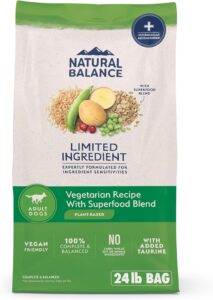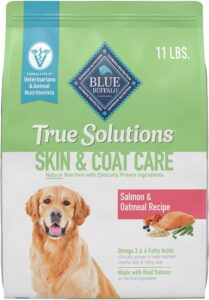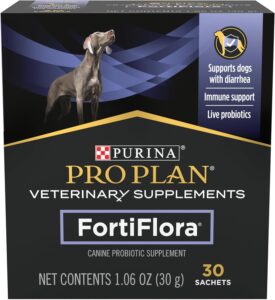
Puppies are bundles of joy, bringing laughter, love, and a bit of chaos into our lives. As a puppy parent, one of the most critical responsibilities you’ll have is ensuring they get the right nutrition at the right times. Feeding your puppy correctly is essential for fostering optimal growth, promoting good health, and supporting their energetic lifestyle. This article will guide you through crafting the ideal feeding schedule for your puppy, highlighting how proper nutrition impacts their development and offering practical tips to boost their growth and health.
The Importance of Proper Nutrition for Puppies
Proper nutrition is the cornerstone of healthy puppy development. Puppies grow rapidly, especially during the first few months of life, and their dietary needs are significantly different from those of adult dogs. They require a diet rich in proteins, fats, vitamins, and minerals to support their growth, build strong bones and muscles, and develop a robust immune system.
When puppies receive inadequate nutrition, it can lead to various health issues, including stunted growth, weakened immune defenses, and developmental problems. Conversely, overfeeding can result in obesity, which poses its own set of health risks. Thus, finding the right balance in their diet is crucial.
Understanding a Puppy’s Nutritional Needs
Before establishing a feeding schedule, it’s important to understand what constitutes a balanced diet for a puppy. Here are some of the key nutritional components necessary for their growth:
Protein
Proteins are the building blocks of life, crucial for tissue growth and repair. Puppies require a higher percentage of protein in their diet compared to adult dogs to support rapid growth and development.
Fats
Fats are a concentrated source of energy and aid in the absorption of fat-soluble vitamins. They are vital for maintaining healthy skin and coat, brain development, and overall energy levels.
Carbohydrates
While proteins and fats are more critical, carbohydrates provide a source of quick energy. They also supply fiber, which aids in digestion.
Vitamins and Minerals
Essential vitamins and minerals, such as calcium and phosphorus, are crucial for bone development, while others support various bodily functions and promote overall health.
Crafting an Optimal Feeding Schedule
Creating a feeding schedule tailored to your puppy’s needs is essential to ensure they receive the appropriate nutrition at regular intervals. The schedule will vary depending on the puppy’s age, breed, size, and activity level but can generally be divided into four stages:
Weeks 1-8: Newborn Puppies
During the first few weeks of life, puppies rely entirely on their mother’s milk, which provides all the necessary nutrients. If the mother is unavailable, a veterinarian can recommend a suitable puppy milk replacer. At around four weeks, puppies may begin transitioning to solid food. Introduce them to a gruel made of high-quality puppy food mixed with water or puppy formula.
Weeks 8-12: Weaned Puppies
By eight weeks, most puppies are ready to be weaned from their mother’s milk and can start eating solid food exclusively. At this stage, they should be fed three to four times a day. Each meal should consist of high-quality puppy food that meets the nutritional guidelines set by the Association of American Feed Control Officials (AAFCO).
3-6 Months: Growing Puppies
As puppies grow, their nutritional needs continue to evolve. By the age of three to six months, you can reduce their feeding schedule to three meals a day. Ensure that each meal is balanced and portioned according to the puppy’s weight and breed.
6-12 Months: Approaching Adulthood
From six months onward, many puppies can transition to two meals a day. However, this can vary based on the breed and individual growth rate. Larger breeds may need to continue with three meals a day to support their growth spurts. At this stage, you may also need to transition from puppy food to adult dog food, but consult your veterinarian for the best timing.
Tips for Feeding Your Puppy
Choose High-Quality Puppy Food
Select a puppy food that lists meat as the first ingredient and is specifically formulated for puppies. Avoid foods with fillers like corn and soy, as well as artificial preservatives and colors.
Establish a Consistent Routine
Puppies thrive on routine, so feed them at the same times each day. This not only helps with their digestion but also aids in house training.
Monitor Portion Sizes
Always follow the feeding guidelines on the puppy food package, adjusting for your puppy’s specific needs. Overfeeding can lead to obesity, while underfeeding can result in malnutrition.
Provide Fresh Water
Ensure your puppy has access to clean, fresh water at all times. Hydration is crucial for their health and well-being.
Transition Foods Gradually
When transitioning from puppy to adult food or between brands, do so gradually over a week. Mix a small amount of new food with the old, increasing the new food’s proportion each day to prevent digestive upset.
Understanding Breed-Specific Needs
Different breeds may have unique nutritional requirements. For example, large breeds like Labrador Retrievers and Great Danes are prone to joint issues and may benefit from foods rich in omega-3 fatty acids and joint-supporting nutrients like glucosamine and chondroitin. Small breeds, on the other hand, may have higher metabolic rates and require more calorie-dense foods.
Consulting with your veterinarian can provide insight into any breed-specific dietary considerations for your puppy, ensuring they receive the optimal nutrition tailored to their needs.
Common Feeding Mistakes to Avoid
To ensure your puppy’s health and growth are not compromised, avoid these common feeding mistakes:
Feeding Table Scraps
Human food can be harmful to puppies, leading to nutritional imbalances and obesity. Stick to a diet formulated for puppies.
Ignoring Portion Control
Overfeeding can lead to obesity, which is harder to manage as your puppy grows. Always measure portions according to their age, weight, and activity level.
Skipping Meals
Consistency is key in a puppy’s diet. Skipping meals can lead to hypoglycemia, especially in smaller breeds.
Neglecting Dental Health
Feeding a mix of dry and wet food can help support dental health. Additionally, providing dental chews or toys can aid in keeping your puppy’s teeth clean.
Conclusion
Feeding your puppy the right nutrients at the right times is pivotal for their growth, health, and overall well-being. By understanding their nutritional needs, establishing a consistent feeding schedule, and avoiding common feeding mistakes, you can ensure your puppy grows into a healthy and happy adult dog. Always remember to consult with your veterinarian for personalized advice tailored to your puppy’s specific needs and circumstances. With careful planning and attention, you can set your puppy on the path to a long, healthy life.
#ChatGPT assisted in the creation of this article.















